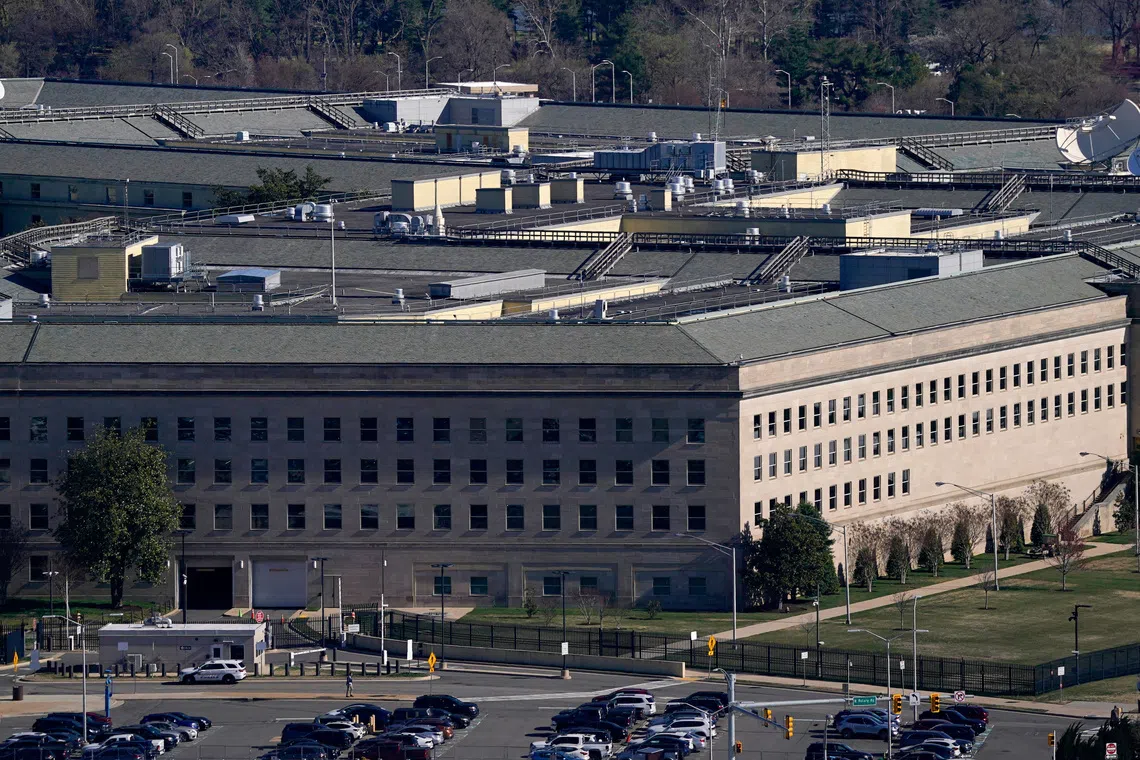US, France step up joint military satellite moves to counter China in space
Sign up now: Get ST's newsletters delivered to your inbox

The operation would be the Pentagon’s third known mission conducted in space with an ally.
PHOTO: REUTERS
Follow topic:
WASHINGTON – France and the United States are planning a second joint mission of coordinated satellite manoeuvres in orbit, part of a growing push to sharpen allied spying capabilities as China expands its own military footprint in space, a senior US general told Reuters.
The operation would be the Pentagon’s third known mission conducted in space with an ally following its first-ever joint manoeuvre with two spacecraft in orbit late in 2024, also involving France. The US Space Command conducted a joint mission with Britain earlier in September.
Space is an increasingly contested military domain, as a soaring number of satellites crucial for communications, missile warning and battlefield intelligence face threats from the world’s top space powers.
China, Russia and the US have demonstrated anti-satellite weapons and launched manoeuvrable spacecraft, raising worries that an attack during conflict could disrupt Global Positioning System navigation or sever channels of communication relied upon by forces on Earth.
Manoeuvring spacecraft with sharper precision and marshalling international alliances have become key fronts in what officials regard as a new global space race, with the US and its allies facing intense rivalry from China and Russia.
“We are planning an effort with France right now,” Lieutenant-General Douglas Schiess, commander of a US Space Force component that works with Space Command to conduct secretive military space operations, told Reuters in an interview. He did not elaborate.
France is Europe’s largest government spender on space. Further operations with other nations could follow, Lt-Gen Schiess said, adding: “I can see us doing more.”
Western military space officials, including ones from Europe as well as the US and Canada, have been issuing warnings about the increase in threats in space to a range of satellites, from military assets to commercial satellite constellations like SpaceX’s Starlink that collectively are used by hundreds of millions globally.
French Space Command declined to comment on any plans. Of the first operation, it said it is training with the United States to strengthen cooperation, learn how to coordinate action and to “demonstrate our strategic solidarity”.
French Space Command “needs to prepare for military space operations in a real-life scenario”, the unit said.
When asked about the initial operation in a recent Reuters interview in Paris, the unit’s commander, Major-General Vincent Chusseau, declined to discuss details but said: “We consider it a success”.
That initial exercise, known as a rendezvous and proximity operation, involved a US and a French military satellite approaching each other near a “strategic competitor’s” spacecraft, US Space Command commander Stephen Whiting revealed in April. Lt-Gen Schiess declined to identify the third nearby satellite in his interview with Reuters last week.
In a second operation conducted between Sept 4 and 12, a US Space Command-operated satellite moved to check whether a British military communications satellite called Skynet 5A was operating in orbit as intended, according to the UK. Both satellites were in geostationary orbit – at an altitude of nearly 36,000km above the Earth – and the operation involved both satellites travelling at around 3km per second, the UK said.
While the two countries did not identify which US satellite was involved in the operation with Britain, a commercial provider of space situational awareness software, called Comspoc, said it observed a highly manoeuvrable US surveillance satellite called USA 271 move close to the UK’s Skynet 5A between Sept 5 and 11.
When the operation was announced last week, the head of UK Space Command, Major-General Paul Tedman, said the operation was a first of its kind for his unit and “represents a significant increase in operational capability”. He added: “We are now, with our allies, conducting advanced orbital operations to protect and defend our shared national and military interests in space.” REUTERS

